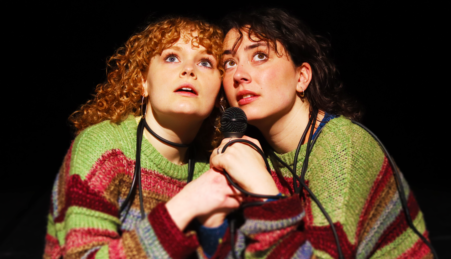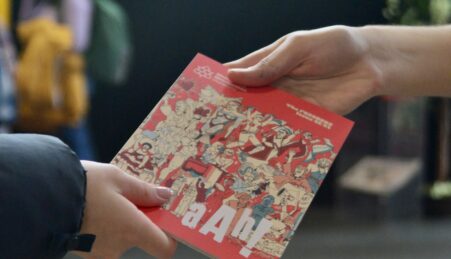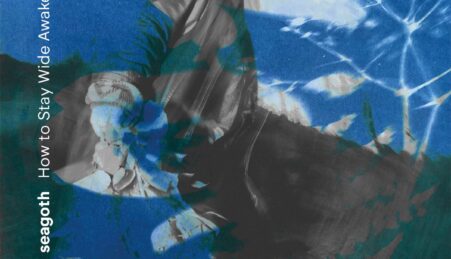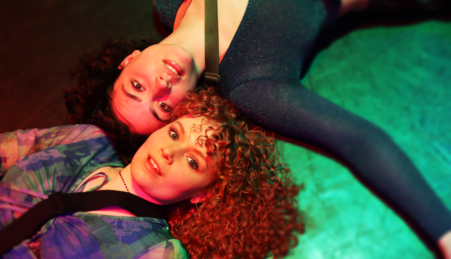
Humanity Hallows Issue 5 Out Now
Pick up your copy on campus or read online
By Pierangelly Del Rio
Manchester Metropolitan University recently hosted the third and final installment of the Sites of Resistance series, part of the 2017 Humanities in Public Festival. Entitled ‘Giving a Voice to the Next Generation’, the aim of the event was to provide a space for the future generation to develop their critical voice by featuring a group of young activists whose lives have been impacted by social inequality and criminalisation.
The event was introduced by Criminologist and Senior Lecturer Patrick Williams, who started the night by speaking about the purpose of Sites of Resistance: “We constantly engage in tackling a number of issues like social injustice, which occur in our contemporary society. Sites of Resistance becomes a space where we can talk and engage in some of these issues.”
He added: “Tonight we wanted to give a voice to the next generation. I don’t mean that in a condescending way. It’s about reflecting on a number of ongoing challenges, injustice concerns and the continuity of these problems. And what they demand within the contemporary context and ways in which we can respond.”
Williams then introduced the participants of the panel: Temi Mwale, Founding Director of the 4Front Project; Tanzil Chowdhury, co-founder of Northern Police Monitoring Project and GM Law Centre; Shareefa Energy, Spoken Word Artist; Nadia Bennett from Inspiring Change Manchester Shelter and Moss Side Young Leader Shiloh Minott. Each speaker was given 15 minutes to explain the way they seek to inspire change in their communities, fight against criminalisation and their motivations behind their projects.
Tanzil Chowdhury, was the first speaker of the evening. Chowdhury explained the project, the Northern Police Monitoring, an initiative dedicated to the support of families whose lives have been negatively affected by Manchester’s police force; i.e., relatives having been shot, illegal stop and searches and harassment.
The marginalisation of brown and black communities in certain areas is not something new; however, it has caught attention given the current social and political climate concentrated in post-Brexit Britain. Chowdhury argued that the demonization of these non-white communities has been spread not only by the local authorities but the media, who has labelled Moss Side as “hot beds of gangsters and terrorism.”
His presentation, entitled ‘Threats, narrative and power: defining our community’ encouraged the younger generation to fight against prejudice and segregation by taking control over their own threats: “The combination of both the richness of your experience and the acknowledgment of the context makes the meaning that you give to what it means to live in those places, much powerful than any Guardian, Observer or Daily Mail articles.”
The next speaker, Temi Mwale, discussed a similar topic but focused on the harassment of black youth and police brutality across the UK. Her experience living in a council state in London and the poverty and crime she witnessed living there, led her to work with inhabitants of similar sectors and to create the 4Front Project. Mwale called attention to the fact that the cases of POC youth who died in police custody are often ignored because these individuals are wrongly labeled as “gangsters.”
“Young people can be engage and involved in politics,” Mwale said. “That is what politics are. The fact that there hasn’t been any convictions for death in custody since 1990, that is political. The fact that there’s more than 1,000 deaths in police custody, it’s political and for me, structural violence, violence committed by the state cannot be separated from the violence that we see in our communities.”
Shareefa Energy proposed the use of the arts to express frustration towards injustice and raise awareness about experiences: “Poetry, spoken words, arts, they are a tool of expression; they are all a tool for me to take out my frustration.” Energy went on to read three pieces of poetry, including ‘Tired’, a powerful piece that narrates her frustrations about the state of the world and the bad news featured daily on media channels.
By the end of the session, the public was able to engage with the speakers and discuss further their achievements. Patrick Williams was among the ones with questions for the panel, asking how older generations could get involved in the conversation about injustice and structural violence.
Speaker Shiloh Minott answered: “There must be a balance between the older generation and the younger generation. Obviously the older generation has the experience of life and the younger generation knows what is going on right now; whether that’s pop culture, culture in general, etc. With that balance there’s need to be spaces for good communication where we can plant seeds which will eventually grow and create change.”
Sites of Resistance: Giving Voice to The Next Generation was well received by the public, with attendee Rosetta Cesay commenting: “It is good to know that our younger generations are involved and proactive when it comes to injustice and racism, it’s really inspiring.”
Humanities in Public will host Manchester as Cosmopolis: Global Migration in a Changing UK on May 10.






Leave a reply